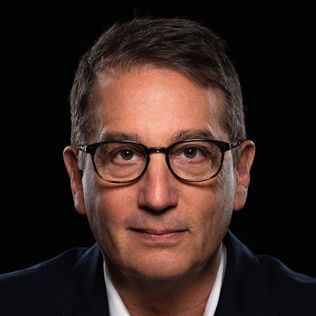The Importance of Lifelong Learning in Dentistry
Dec 04, 2024Today, I’m going to talk about one of my favorite topics: continuing education. When I say continuing education, I’m not just talking about going to courses, earning credits, and returning to your office with the knowledge you gained. What I mean is becoming a lifelong learner.
What Does It Mean to Be a Lifelong Learner?
Most healthcare professionals, including dentists, are lifelong learners by nature. We are driven by education and achievement. Becoming a doctor or dentist isn’t a decision you make lightly—it requires years of schooling. For some, that’s 8 to 10 years, and for others, it’s even longer.
But after we leave school, how do we continue learning? What’s the best way to grow professionally?
Ways to Continue Learning
Reading
Reading is one of the most traditional ways to learn, though it has become less common due to shorter attention spans. The average person reads no more than 40 to 60 pages before putting a book down. While people like Bill Gates or Warren Buffett dedicate significant time to reading, most of us don’t do that anymore.
Reading is valuable because it provides access to the world’s information. However, not everything you read is accurate. It’s important to approach literature critically to assess its credibility.
Watching and Attending Courses
Another way to learn is by watching or attending courses. Whether in-person or online, courses offer a structured way to gain new skills. You can learn techniques such as placing dental implants or mastering full-arch restorations. Social media platforms, YouTube, and online courses make it easier than ever to access this type of learning.
Additionally, shadowing others or attending group-based courses where you can exchange ideas with peers is another great way to learn.
Learning Through Experience
In my opinion, the greatest teacher is experience. I’ve come to realize that there’s no wisdom without experience. Wisdom comes with age, as it’s built on a lifetime of experiences.
There are stages in life where we move from being novices to becoming highly competent workers, then to leaders, and finally to those with wisdom. Wisdom allows us to share our life’s experiences with others. Unfortunately, it’s not something you can rush—wisdom takes time.
The Role of Mentors
Mentors play an essential role in continuing education. Throughout my career, I’ve had many mentors. In periodontics, I’ve learned from greats like Dennis Tarnow and John Kois. I’ve had mentors in surgery, sports, and even fitness.
Recently, I started Taekwondo and now have a mentor, Master KJ, who is 35 years younger than me. He’s teaching me balance, breathing, strength training, and fitness, pushing me to levels I wouldn’t achieve on my own.
Your mentors may change over time as your goals evolve. For example, if I wanted to improve my cooking skills, I might seek out a world-class chef as a mentor. There’s always someone who knows more than you in any discipline.
The Power of Mastermind Groups
Another powerful way to grow is by joining a mastermind group. These are groups of like-minded individuals who share knowledge and experiences openly.
Years ago, I started a mastermind group with other periodontists. To join, each of us had to share our tax returns and profit and loss statements. It was an exercise in building trust, and from there, we openly shared everything about our practices and challenges.
During COVID-19, this group became even more valuable. We met weekly to share knowledge and navigate uncertainties together. The collective wisdom of the group made us stronger.
If you’re not part of a mastermind group, I strongly recommend joining one. Collaboration—not competition—fosters growth and strengthens everyone involved.
Sharing Knowledge Freely
In my local study club, I encourage younger dentists to embrace open collaboration. We’re not competitors; we’re collaborators. When we share openly and honestly, real magic happens. It elevates us as individuals and as a group.
Education is not just about learning—it’s about sharing what you’ve learned. I’ll end with a story about Harry Gray, the former president of United Technologies. At a college graduation speech, he said:
"I can give away everything I know, and it doesn’t cost me a thing. If I had all the world’s money and gave away $1, I’d have less. But if I gave away all the world’s knowledge, I’d still have it all."
This abundance mindset is what makes education so powerful. When we commit to lifelong learning and share it with others, we become a gift to those around us.
Be the gift. Have a great day.




